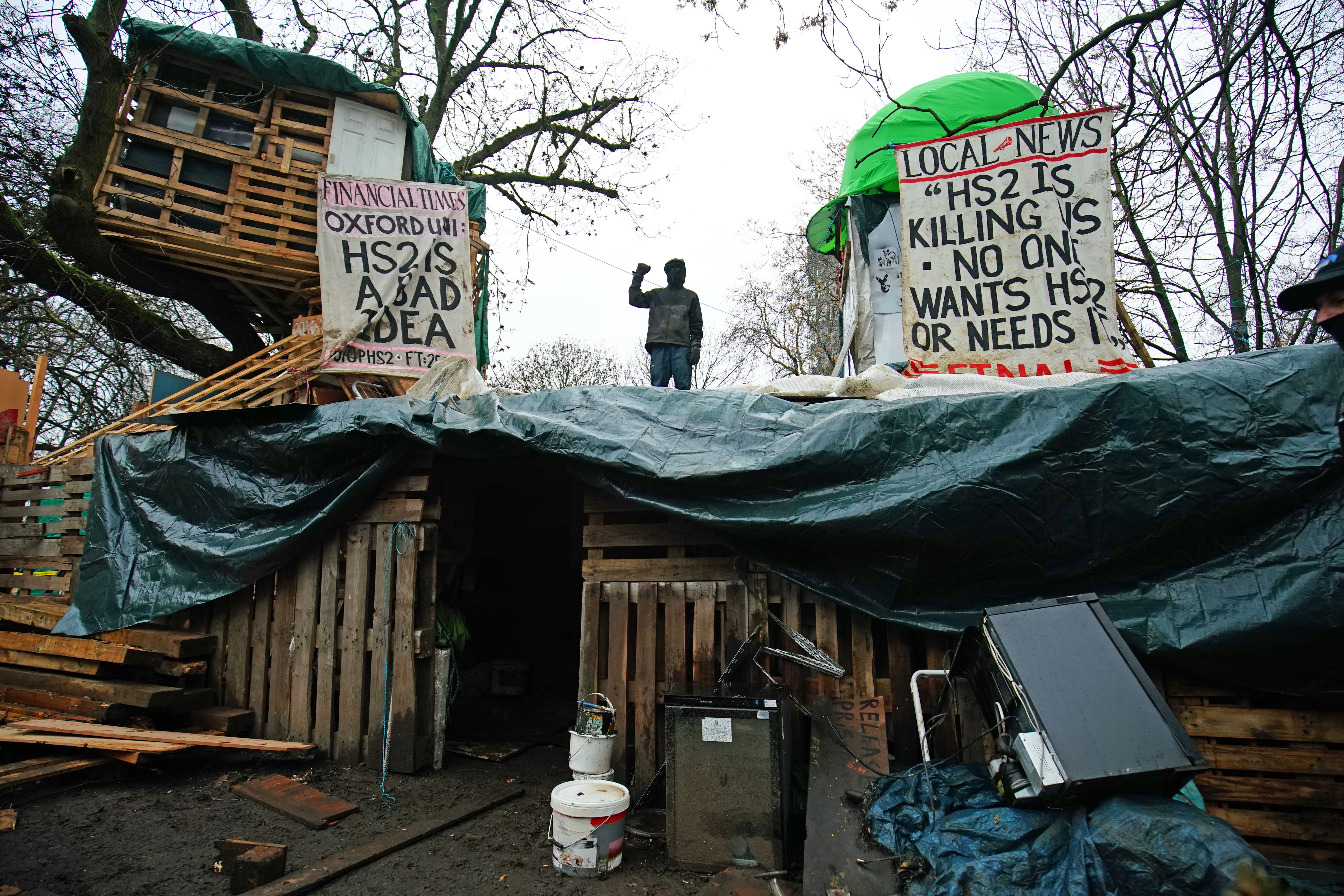Prosecutors challenge dismissal of charges against anti-HS2 Euston tunnellers
The judge erred when she threw out the charges on a technicality, prosecutors have argued.

Prosecutors want a retrial of anti-HS2 protesters who occupied tunnels near Euston station – after charges against them were dismissed on a “trivial” technicality, the High Court has been told.
Daniel Hooper, also known as Swampy, Dr Larch Maxey, Isla Sandford, Lachlan Sandford, Juliett Stevenson-Clarke and Scott Breen denied aggravated trespass through obstructing or disrupting a person engaging in a lawful activity.
The Crown Prosecution Service brought a case against them after activists dug tunnels beneath Euston Square Gardens and lived in them for a month.
The six, part of a group called HS2 Rebellion, were involved in protest action at the central London green space over objections to the redevelopment of the area for the high-speed railway line.
At Highbury Magistrates’ Court last October, District Judge Susan Williams dismissed the charges because HS2 was not carrying out construction work at the site at the time of its occupation.
There was no evidence that anybody was going to do anything on the land in any immediate sense once the protesters had been evicted
An HS2 spokesman previously said they were “bitterly disappointed” with the outcome.
The director of public prosecutions (DPP), Max Hill KC, has now brought a High Court challenge seeking to quash the judge’s “flawed” decision.
The six former defendants were among 40 protesters who set up camp in the park early last year, building wooden structures in trees and secretly digging a tunnel network, the court was told on Wednesday.
HS2 possessed the area, where it planned to build a taxi rank, before the tunnels were discovered in late January last year.
A warrant ordering protesters off the site was issued by HS2 and a number of High Court injunctions were obtained amid its weeks-long efforts to evict protesters, whose disruption cost the company an estimated £3.5 million, judges were told.
“The exercise was complex, dangerous and required substantial resources,” Louis Mably KC, for the DPP, said in written arguments, saying the last protester was removed on February 25.
He said the judge was “irrational” in concluding the eviction activity and clearing the land was not “HS2 construction” – the description in the charges of the lawful activity allegedly disrupted – and the protesters had therefore “no case to answer”.
It meant the prosecution “fell on a technical drafting defect which… had no bearing on the substance” of the case and could have been “easily remedied by amendment”, Mr Mably said.
The defect was “of a trivial nature” and the clearance of the land fell within the “broad” HS2 construction term, Mr Mably said as he asked for the case to be sent back to magistrates’ court for a retrial.
Mr Mably said it was “unnecessary” for the judge to “embark on a close linguistic analysis of the meaning of HS2 construction”, saying there was a “plain public interest in prosecution”.
He said it was “clear” the eviction was done with a view to “handing over the site to allow building to take place”.
Clare Montgomery KC, representing Mr Breen as an interested party in the High Court case, said in written submissions the DPP’s challenge should be dismissed.
The barrister said the judge made “reasonable factual findings” that “there was no construction work taking place on the site nor was there any construction work that was about to take place on the site”.
Prosecutors made an allegation they were “unable properly to evidence”, Ms Montgomery said.
She said the charges, which carry a maximum possible sentence of three months in prison, came out of an “otherwise peaceful demonstration” nearly two years ago, with the delay leading up to a potential retrial lessening the public interest in the prosecution continuing.
In court, Ms Montgomery said: “The charge made by the prosecutor simply hadn’t been made out as a matter of proof.
“There was no evidence that anybody was going to do anything on the land in any immediate sense once the protesters had been evicted.”
Dame Victoria Sharp and Mr Justice Johnson, who heard the case, will give their judgment at a later date.
